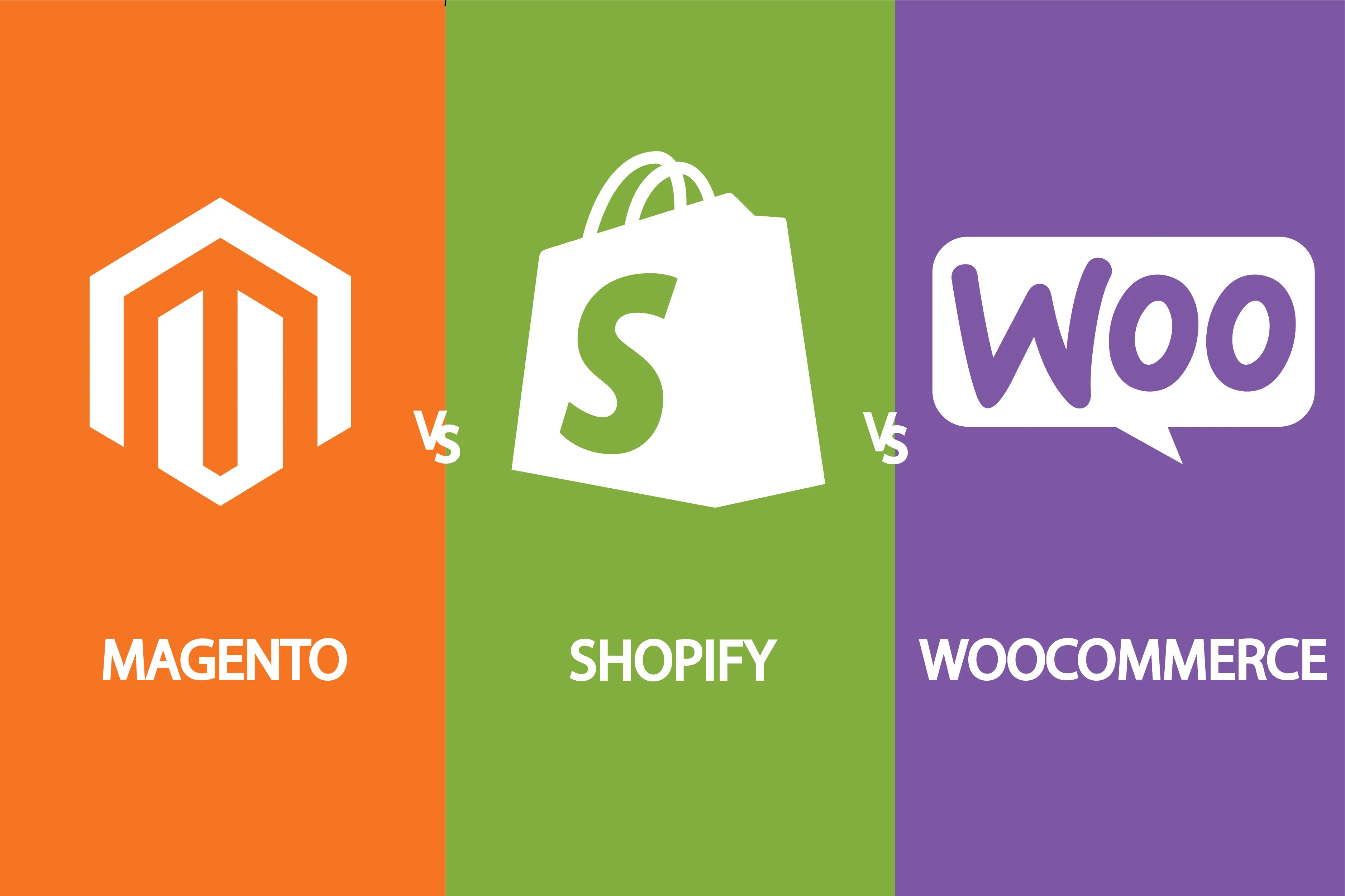Navigating E-Commerce Platforms in 2024: Magento, Shopify, and WooCommerce

CATEGORY
Blog, eCommerce
Steven Mai
Chief eCommerce, NETFINE
DATE
Jul 10, 2024
In the dynamic world of online retail, choosing the right e-commerce platform is crucial for success. Magento, Shopify, and WooCommerce each offer unique features and capabilities, catering to different business needs and strategies. As we move through 2024, understanding the strengths of these platforms and how they align with current e-commerce trends can help businesses make informed decisions to drive growth and customer satisfaction.
Magento: Customization and Scalability
Magento remains a top choice for businesses seeking a high level of customization and scalability. As an open-source platform, Magento provides extensive flexibility, allowing merchants to tailor their online stores to their specific needs. Key features of Magento include:
- Customizable Design: Magento offers a wide range of customizable themes and extensions, enabling businesses to create unique and branded shopping experiences.
- Advanced Analytics: With built-in reporting tools and integration options, Magento allows for deep data analysis and insights.
- Multi-Channel Capabilities: Magento supports integration with multiple sales channels, including physical stores, social media, and mobile apps, providing a unified shopping experience.
Shopify: User-Friendly and Efficient
Shopify is renowned for its ease of use and efficiency, making it a popular choice for small to medium-sized businesses. Its user-friendly interface and robust features simplify the e-commerce setup and management process. Notable aspects of Shopify include:
- Ease of Setup: Shopify’s intuitive design allows users to quickly set up their online store with minimal technical knowledge.
- Mobile Optimization: With mobile-responsive themes and features, Shopify ensures a seamless shopping experience across all devices.
- App Integration: Shopify’s extensive app marketplace offers numerous integrations to enhance functionality, from marketing tools to inventory management.
WooCommerce: Flexibility and Integration
WooCommerce, a WordPress plugin, is ideal for businesses that require flexibility and already use WordPress for their website. It provides a range of features and benefits, including:
- Seamless Integration: As a plugin for WordPress, WooCommerce integrates smoothly with existing WordPress sites, offering a familiar interface for users.
- Customizable Features: WooCommerce offers numerous plugins and extensions to enhance functionality, including payment gateways, shipping options, and SEO tools.
- Cost-Effective: WooCommerce is generally more cost-effective compared to other platforms, making it an attractive option for startups and small businesses.
Trends Shaping E-Commerce Platforms
As e-commerce continues to evolve, several trends are influencing how platforms like Magento, Shopify, and WooCommerce are enhancing their offerings:
- Omni-Channel Retailing: Integrating online and offline sales channels is becoming increasingly important. All three platforms support omni-channel strategies to some extent, with Magento offering extensive multi-channel capabilities, Shopify providing seamless integration options, and WooCommerce integrating with various plugins for omnichannel support.
- AI and Personalization: AI-driven features such as personalized recommendations and chatbots are becoming standard. Magento and Shopify are leading with advanced AI tools, while WooCommerce offers AI integrations through third-party plugins.
- Mobile Commerce: Mobile optimization remains crucial. Shopify excels in this area with mobile-responsive designs, while Magento and WooCommerce also offer mobile-friendly features and integrations.
Choosing the Right Platform: Considerations for Your Business
When selecting an e-commerce platform, businesses should consider factors such as:
- Business Size and Growth Potential: Magento is ideal for larger businesses with complex needs, while Shopify is suitable for small to medium-sized enterprises. WooCommerce works well for businesses already using WordPress.
- Customization Needs: Magento offers the highest level of customization, Shopify provides a balanced approach with some customization, and WooCommerce offers flexibility through plugins.
- Budget and Resources: Shopify’s ease of use and lower upfront costs may appeal to startups, whereas Magento’s advanced features come with higher costs. WooCommerce is a cost-effective option for those familiar with WordPress.
Conclusion: Aligning E-Commerce Platforms with Business Goals
Choosing the right e-commerce platform is a strategic decision that impacts your online retail success. Magento, Shopify, and WooCommerce each offer distinct advantages, from Magento’s advanced customization and scalability to Shopify’s user-friendly interface and WooCommerce’s flexibility and integration with WordPress. By understanding the strengths of each platform and aligning them with your business goals and trends, you can set the stage for a successful and future-proof e-commerce strategy.
RELATED CONTENT
BLOG
Cybersecurity, Data and Analytics
The Strategic Importance of Data Governance in Today's Business Landscape BLOG
Retail, Cybersecurity, Data and Analytics
Strengthening Network Security: Preparing for Breaches to Build Stronger Defenses Welcome to netfine.co! In order to provide a more relevant experience for you, we use
cookies to enable some website functionality. Cookies help us see which articles most
interest you; allow you to easily share articles on social media; permit us to deliver
content, jobs and ads tailored to your interests and locations; and provide many other site
benefits. For more information, please review our Cookies Policy and Privacy Statement.
>
Cookies Preferences
Any web site that you visit may store or retrieve personal information, mostly through the
use of cookies. This information, which can pertain to you, your preferences, or your
device, is utilized according to the purposes outlined in each category of cookies below.
Netfine PLC is the data controller for any personal data processed through our cookies.
Additionally, we employ cookies from third-party companies, such as Facebook, Microsoft,
Twitter, YouTube, Instagram, and LinkedIn Analytics, to provide web analytics and insights
about our site.
You can manage your cookie preferences by adjusting the sliders for each cookie category.
Accepting cookies will enable the functionalities described for each category, while
declining cookies will prevent those functionalities from being activated. We respect your
right to privacy and provide the option to refuse certain types of cookies. You also have
the right to withdraw your consent at any time by modifying your preferences in our cookie
consent manager.
For further details and to adjust our default settings, please refer to our Cookies Policy.
Accept All
Confirm My Choices
Dark Mode